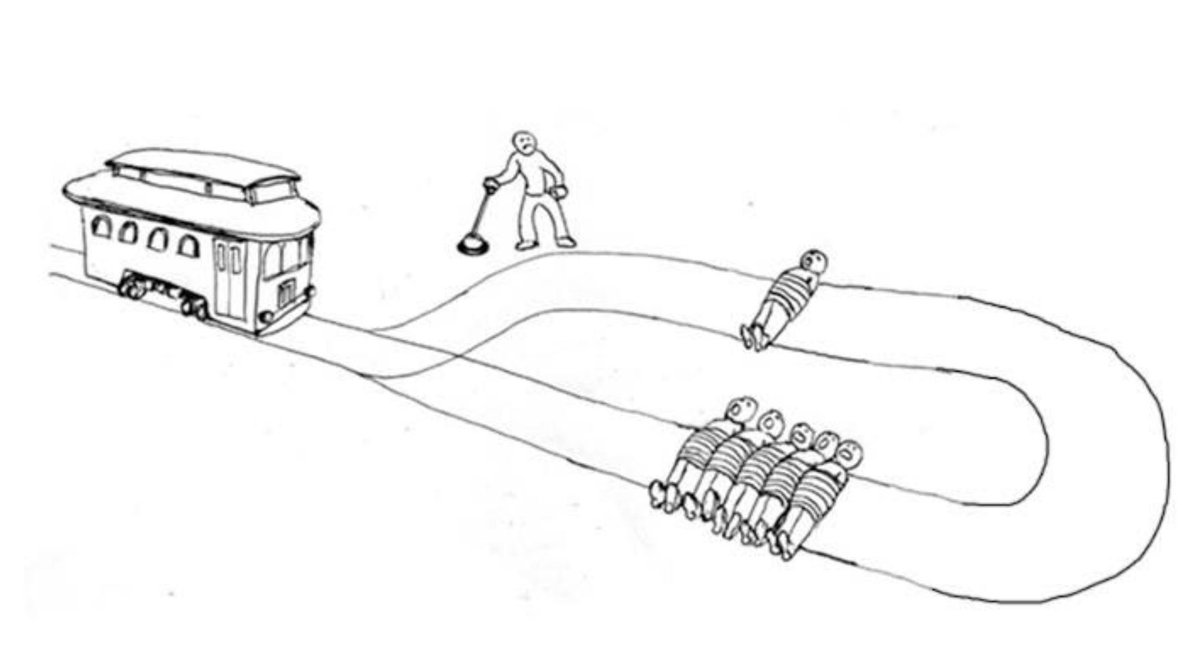
IS THE AUTISM SPECTRUM TWO-TAILED?
The autism spectrum is usually described as single-tailed, as in the picture below.
But what if there were a tail also on the left side?
Thread, 1/N
The autism spectrum is usually described as single-tailed, as in the picture below.
But what if there were a tail also on the left side?
Thread, 1/N

2/ I believe that the actual spectrum of autism-related conditions is actually closer to this chart.
What lies on the left side?
What lies on the left side?

3/ First, we must understand what's the horizontal axis.
(Disclaimer: I'm no medical professional and this is just a hypothesis – though one worth exploring, IMHO.)
(Disclaimer: I'm no medical professional and this is just a hypothesis – though one worth exploring, IMHO.)
4/ I believe that the horizontal axis represents the tendency to consider details over context while processing information.
People on the right tail of the spectrum tend to ignore context, so they do poorly at tasks where context is signal, such as social interactions.
People on the right tail of the spectrum tend to ignore context, so they do poorly at tasks where context is signal, such as social interactions.
5/ This hypothesis is explained in the visual thread below.
https://twitter.com/DellAnnaLuca/status/1176171416397451264?s=20
6/ It would follow that on the left tail of the spectrum there are those who tend to overweight context over details in their cognitive processing.
These people would do poorly at tasks where context is noise and details are signal, such as mathematics and computer science.
These people would do poorly at tasks where context is noise and details are signal, such as mathematics and computer science.
7/ Why is the left tail of the spectrum invisible?
I believe it's because if one is bad at social interactions, it's easy to see it as a red flag for a condition, whereas if one is bad at maths, it's plausible to guess that "he's lazy" or "he didn't study".
I believe it's because if one is bad at social interactions, it's easy to see it as a red flag for a condition, whereas if one is bad at maths, it's plausible to guess that "he's lazy" or "he didn't study".

8/ To clarify. I'm not saying that if one is bad at math, then he is on the left side of the spectrum.
I'm saying that being on the left side of the spectrum would be a possible cause of impairment at maths but not the only one: also bad teachers, no study, no engagement, etc.
I'm saying that being on the left side of the spectrum would be a possible cause of impairment at maths but not the only one: also bad teachers, no study, no engagement, etc.
9/ Conversely, we are all exposed to a much higher quantity of social interactions than math exercises, and we can rarely ignore it all.
Hence the higher likelihood that if someone is really bad at social interactions, it might be because he's on the right side of the spectrum.
Hence the higher likelihood that if someone is really bad at social interactions, it might be because he's on the right side of the spectrum.
10/ A second clarification. It is a spectrum, not a binary or trinary classification.
Also, there is some degree of adaptation. If someone is just a bit off the average, he can learn to compensate. But if someone is too distant from it, it's hard if not impossible.
Also, there is some degree of adaptation. If someone is just a bit off the average, he can learn to compensate. But if someone is too distant from it, it's hard if not impossible.
11/ A third clarification. The tails are not necessarily symmetric. Nor the bell must necessarily have this shape. Pardon my poor Powerpoint skills.
12/ That said, I think we should at least consider the possibility that the spectrum of conditions associated with autism is two-tailed.
Why does it matter?
Why does it matter?
13/ If autism-related conditions were indeed an impairment in processing information with a context/detail ratio that is too far off to one's "focus point", then more attention should be given to providing information that isn't noisy to the recipient.
14/ It would follow that, for effective communication, we should strive to convey as much as possible the important information in the context for the benefit of those on the left tail, and as much as possible in the details for those on the right tail.
However…
However…
15/ However, this would be hard if not impossible to do, if people on different tail have opposite focuses.
Hence, the impossibility of "one fits all" and the need to acknowledge that different communication styles are needed
Hence, the impossibility of "one fits all" and the need to acknowledge that different communication styles are needed
• • •
Missing some Tweet in this thread? You can try to
force a refresh





